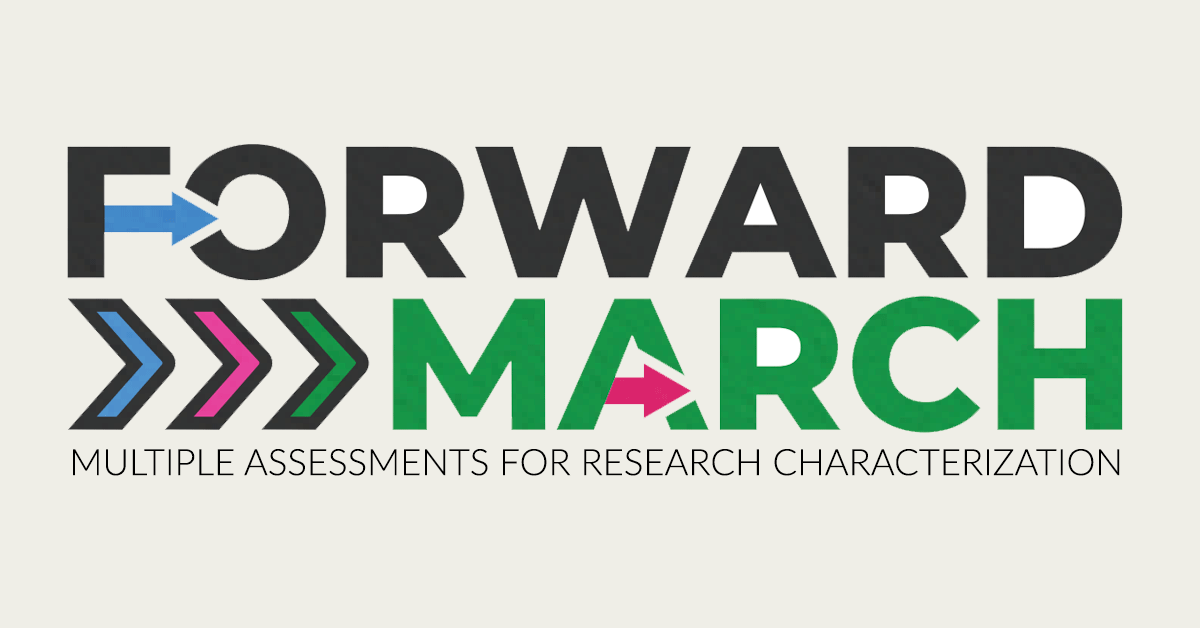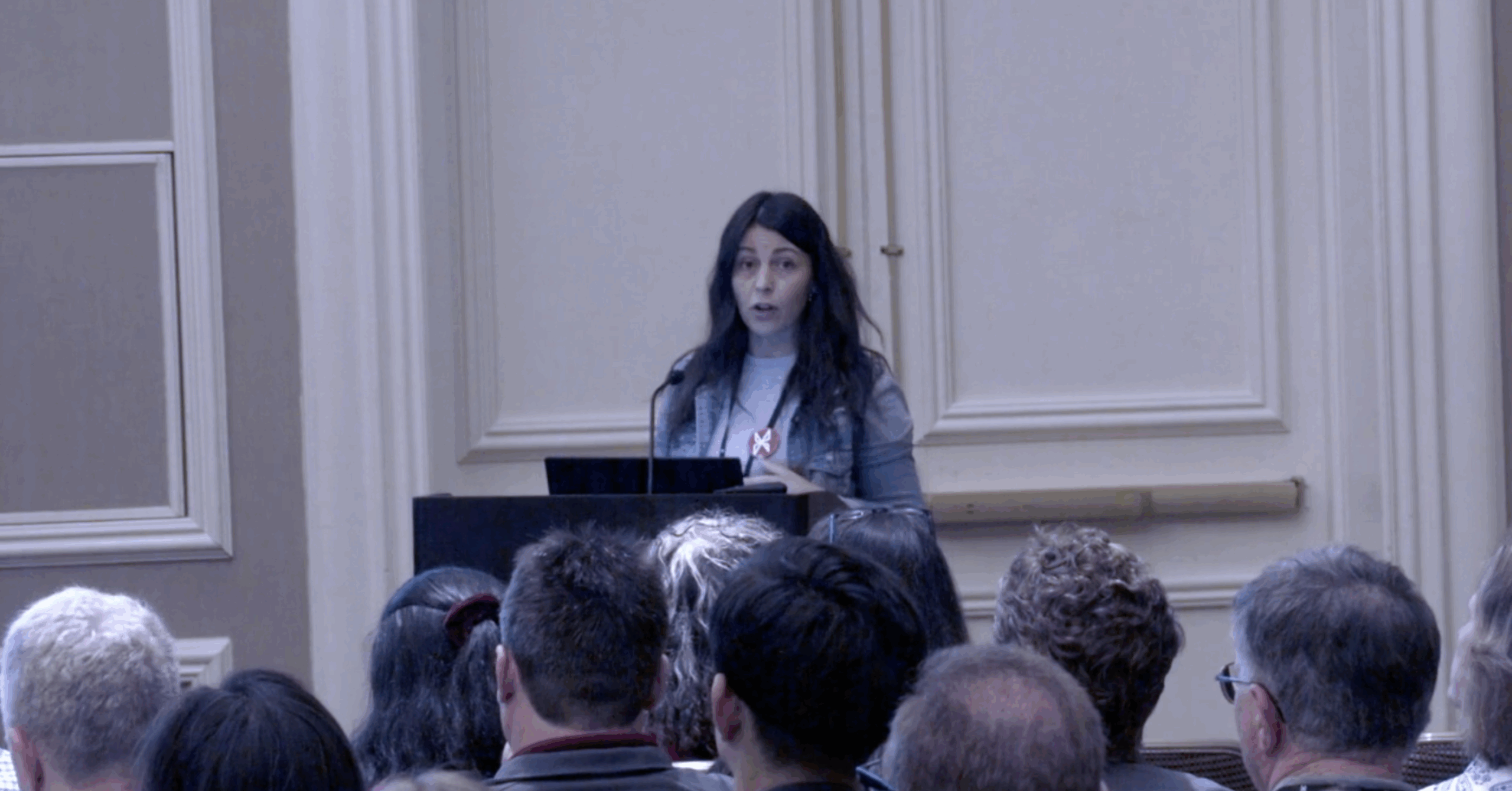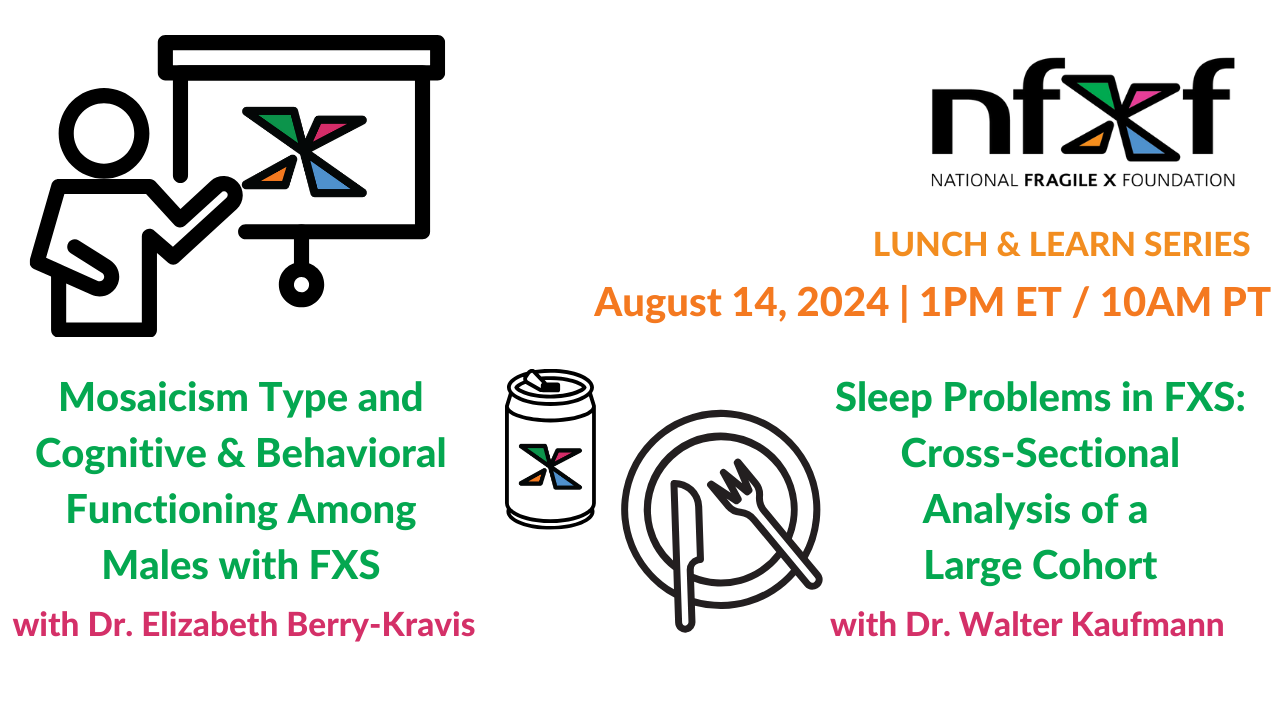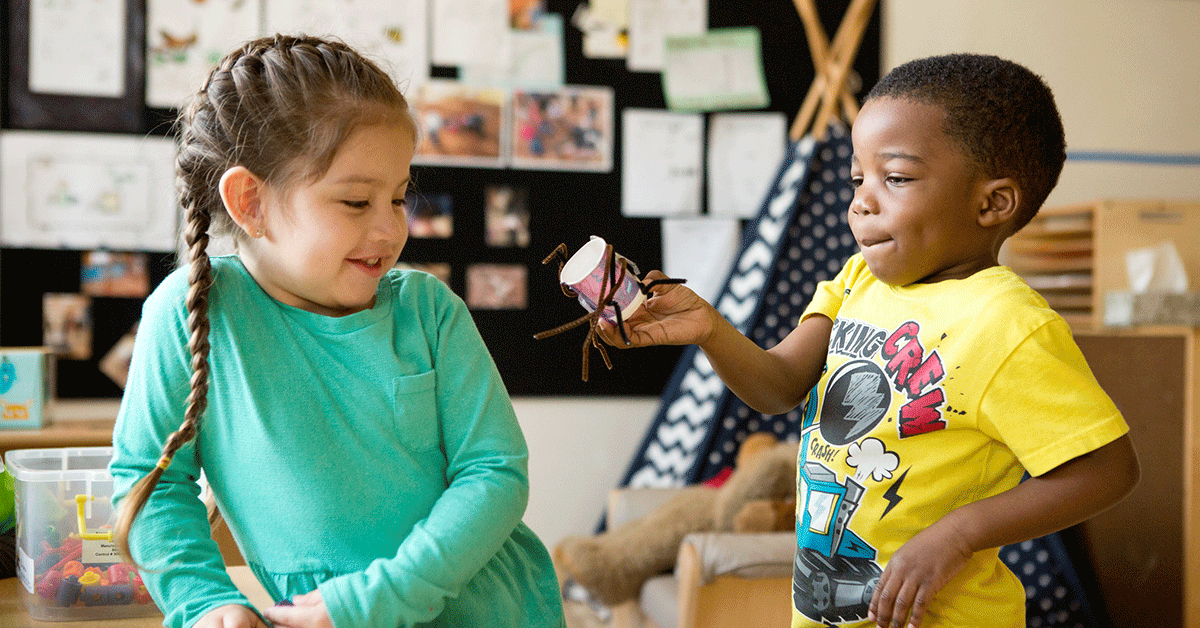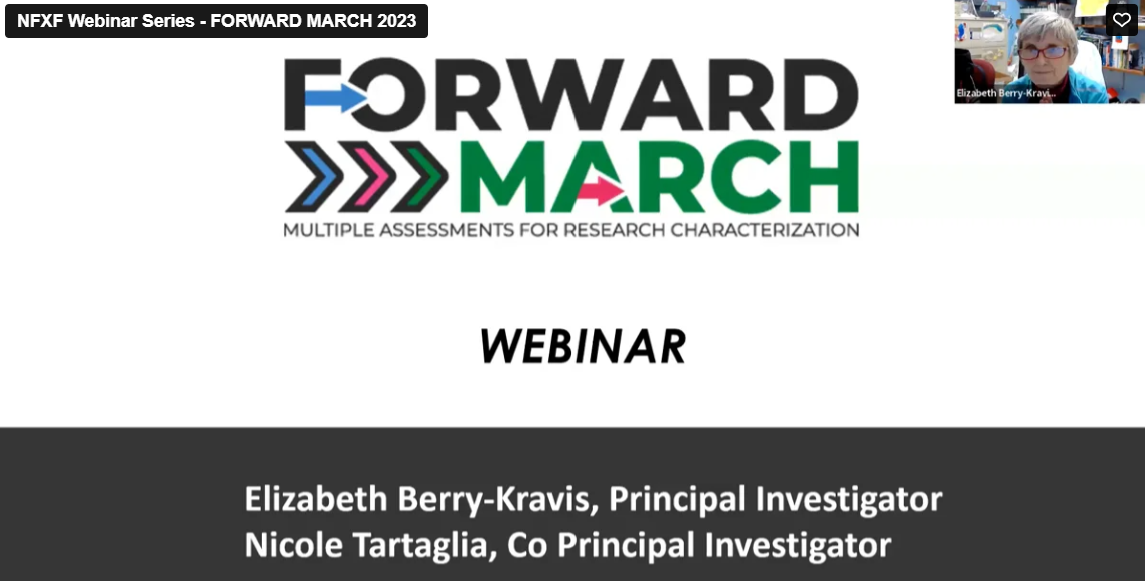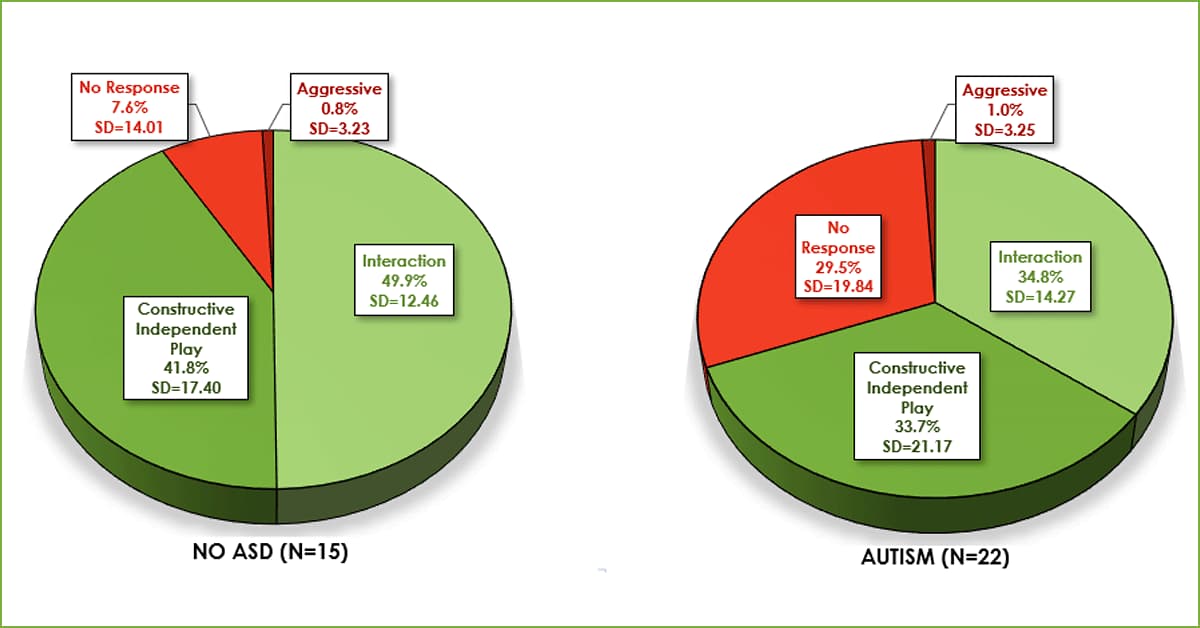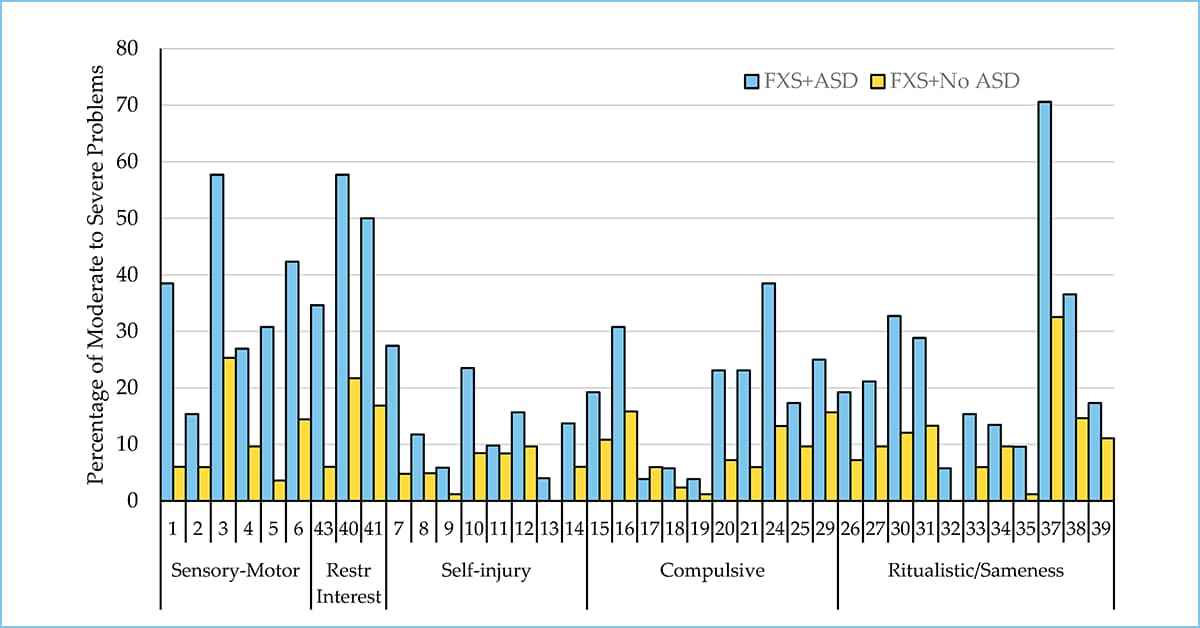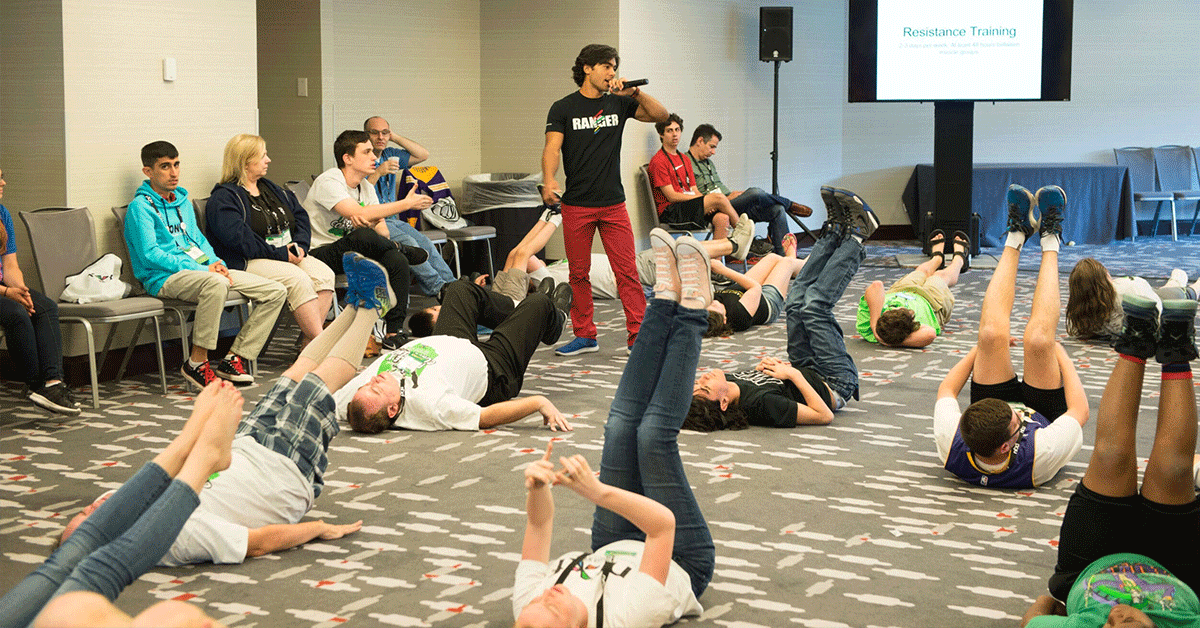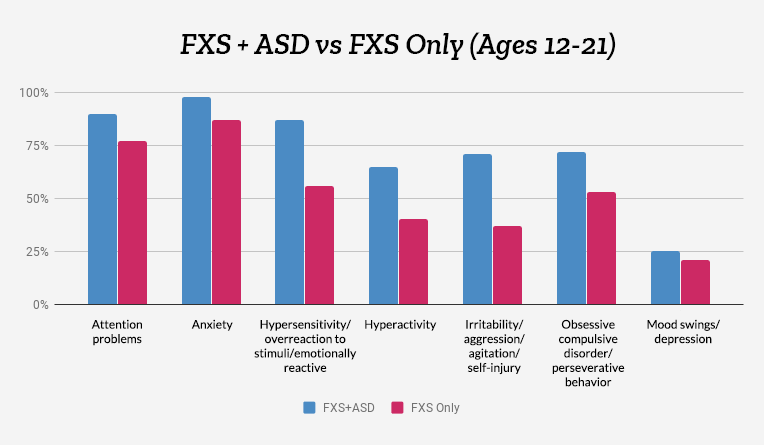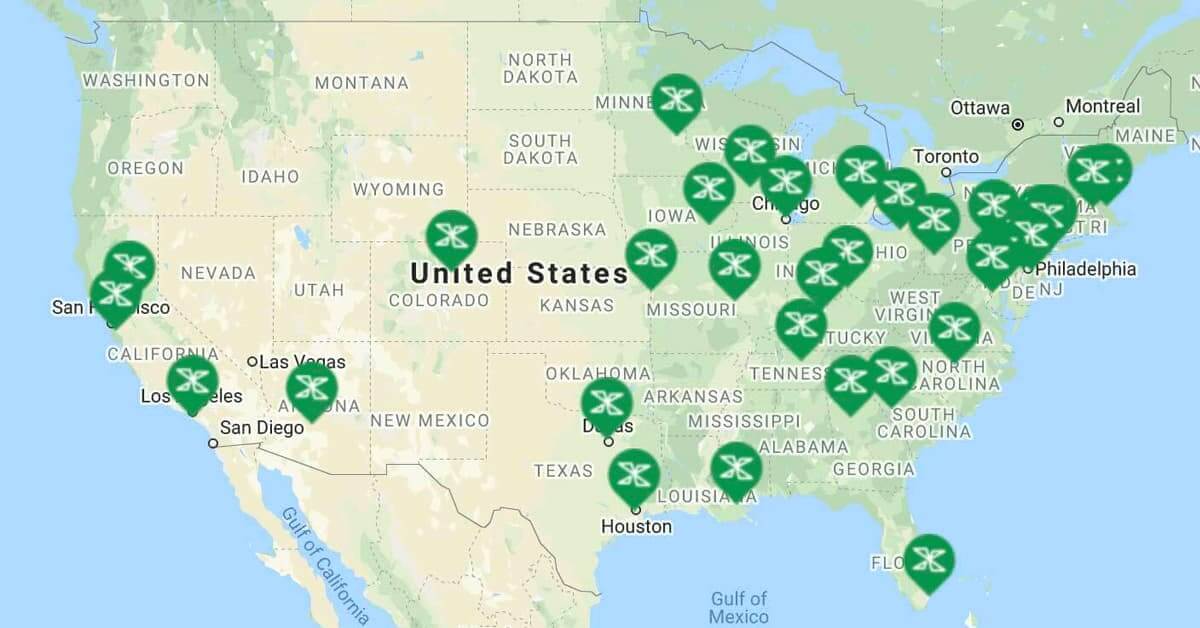We’re on a mission to enroll 600 participants with FXS born in 2003 through 2020. We’re halfway there and we need your help!
Get the latest insights from the FORWARD-MARCH Fragile X study on adult life, medical issues, sensory symptoms, and behavioral subtypes in Fragile X syndrome.
Dr. Elizabeth Berry-Kravis and Dr. Walter Kaufmann presented two of the “most-cited” publications from the American Journal of Medical Genetics Part A and answered questions during a moderated Q&A.
In the latest from the NFXF Webinar Series, panelists discuss the advances made in understanding Fragile X Syndrome through FORWARD, the Fragile X Online Registry With Accessible Research Database.
Over the past 15 years, CDC has funded four FORWARD (Fragile X Online Registry With Accessible Research Database) Fragile X studies to expand understanding of Fragile X syndrome (FXS).
More research needs to be done, but knowing more about how FXS differs in people with and without methylation mosaicism may eventually help guide the expectations and treatment of individuals with FXS.
Findings showed that sleep difficulties are prevalent in children with FXS and, although they tend to be mild, they are associated with behavioral problems and negative impact to families.
The cooperative agreement was awarded to Dr Elizabeth Berry-Kravis of Rush University Medical Center by the Centers for Disease Control and Prevention.
Dr. Berry-Kravis discusses what we’ve learned about the problems that face adults living with Fragile X syndrome.
Our partners at the CDC released a new paper intending to help clinicians identify preventive care services that their patients with FXS may need.
We take a look at behavioral issues in individuals with FXS plus ASD and compare them to those with FXS alone.
These findings provide preliminary information about the early language learning environment and support for the feasibility of utilizing an automated vocal analysis system within the FXS population that could ease data collection and further our understanding of the emergence of language development.



